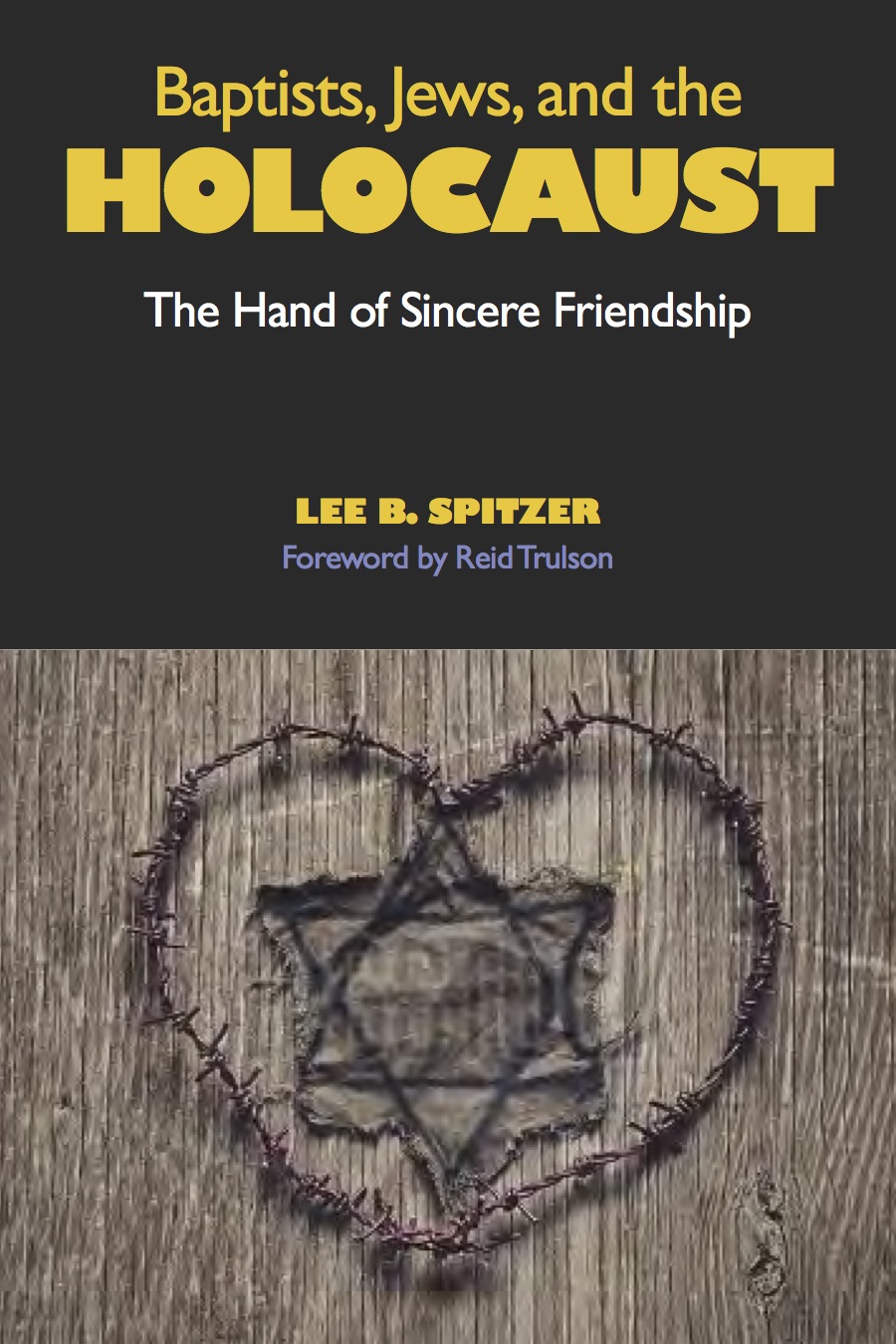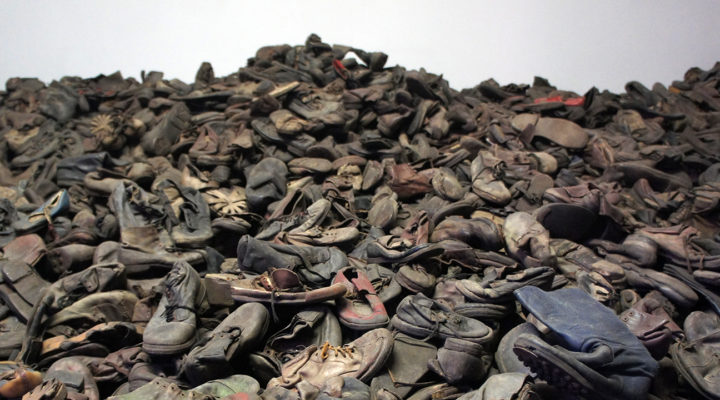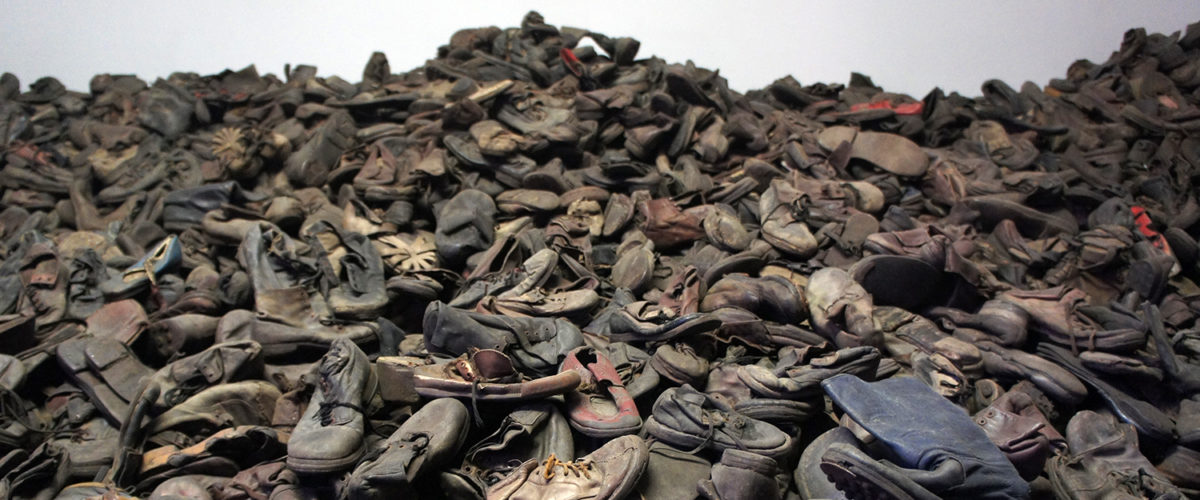Baptists in the United States were not indifferent to the suffering of Jewish people during the Holocaust, but anti-Semitism was not at the top of their list of priorities, according to new book detailing the history of the Baptist response to repression and persecution of the Jews in the 1930s written by a top official in the American Baptist Churches USA.
Baptists, Jews, and the Holocaust: The Hand of Sincere Friendship, by Lee Spitzer, general secretary of the ABC/USA, explores in depth how U.S. Baptists responded to Jews at home and abroad, especially as anti-Semitism grew and reports of genocide overseas reached America’s shores during World War II.
The subtitle, “The Hand of Sincere Friendship,” quotes a British Baptist, James Henry Rushbrooke, president of the Baptist World Alliance from 1939 to1947, at a forum on anti-Semitism and the Nazi threat held in London in 1935.
Spitzer, born into a Jewish home in Brooklyn, N.Y., converted to the Christian faith at age 14 after becoming convinced that Jesus was the Jewish Messiah. He was ordained an American Baptist minister in 1981, but he never really wondered about how his new spiritual family, American Baptists, responded to the Holocaust until 1985.
 As a pastor in Rhode Island, he helped organize a statewide campaign protesting a ceremonial visit by U.S. President Ronald Reagan to a German military cemetery honoring soldiers in a paramilitary organization under Adolf Hitler judged in the post-war Nuremburg trials as guilty of crimes against humanity.
As a pastor in Rhode Island, he helped organize a statewide campaign protesting a ceremonial visit by U.S. President Ronald Reagan to a German military cemetery honoring soldiers in a paramilitary organization under Adolf Hitler judged in the post-war Nuremburg trials as guilty of crimes against humanity.
Spitzer didn’t embark on the project in earnest until 2011, when he set out to visit archives throughout the United States, Europe and Asia searching primary and secondary sources for clues about how Baptists fit into an era marked in numerous Holocaust studies by the relative silence of individuals, communities and religious bodies.
“As the Nazis persecuted the Jews of Europe and the Holocaust raged during World War II, was the Baptist offer of friendship to the Jews really sincere?” Spitzer asks in the introduction. “Did Baptists throughout the United States reach out to Nazi victims through individual and corporate expressions of caring and compassion? Were Baptists in the United States truly concerned, or were they apathetic in the face of the persecution and attempted extermination of the Jewish people?”
The answer is complicated.
With a tradition of deliberating about world affairs and a demographic base comfortable with the Roosevelt administration, Spitzer says leaders of the Northern Baptist Convention, forerunner to the ABC/USA, were poised to respond with official statements supporting persecuted Jews, opposing anti-Semitism and rejecting totalitarian movements including Nazism, putting the denomination on record as being on the right side of history.
Spitzer says it is fair to question the effectiveness of those resolutions, which rarely called for any sacrifice on the part of churches and their members, and hard to gauge the impact the statements had on the relationships between Jewish and Baptist communities at the local level.
Spitzer says in general “the episodic attention of the Northern Baptist Convention to the suffering of Europe’s Jews proved to be ineffective in countering the Nazis’ destruction of the Jewish population of Europe.”
Spitzer describes responses in the Southern Baptist Convention as “ambivalent, reflecting conflicting agendas and contradictory messages.”
A small number of influential leaders were openly anti-Semitic, making it harder for the SBC to address the issue substantively in resolutions. Southern Baptist missionaries had loyalties to Italian Baptist leaders who supported Mussolini, and the denomination’s emphasis on evangelism was a convenient excuse to ignore controversial social issues so has not to distract the convention from its main purpose of cooperative missions.
At the same time, Jacob Gartenhaus, a Southern Baptist missionary to Jews for the denomination’s Home Mission Board from 1921 to 1948, worked tirelessly to push Southern Baptists in the other direction, espousing support for Zionism and advocating friendship between Baptists and Jews as a way to open doors for evangelism.
Spitzer says their own second-class political and social status gave African Americans a unique perspective on the plight of Jews suffering persecution under Hitler.
While “spiritually predisposed” to be sympathetic to Jews seeking deliverance and liberty in Germany and “particularly sensitive to the subjugation of minorities in general and to the German Jewish persecution in particular,” Spitzer says, attitudes of African-American Baptists were marred by negative forces of bitterness and jealousy over economic and social inequality between Jewish and black communities in the U.S. and questions about why American condemnation of Hitler and concern about trying to help German Jews did nothing to alleviate African-American suffering.
Spitzer says it is extremely unlikely that any protests or actions by Baptists in the United States could have halted the Nazi persecution or prevented the Holocaust, but in hindsight they could have done more to alleviate suffering.
He says Baptists could have advocated for changes in U.S. immigration policy to increase the quota of Jewish refugees, potentially saving the lives of tens of thousands of Jews fleeing from the Nazis.
They could have pressured the Baptist World Alliance to give greater support to German Baptist leaders who were not sympathetic to the Nazi regime and withdrawn support from those who did embrace the aims of the new government and its leader.
They could have been more positively inclined toward Zionism by endorsing Palestine as a place for mass Jewish immigration as the best practical solution to a problem not easily resolved. The SBC in particular was in a position to mediate concerns between Jewish and Arab communities through its missionary corps.
He says Baptists could have also done more to embrace and welcome European Jews into U.S. society, affirming the Jewish community as an equal partner in the struggle against all forms of social injustice, including anti-Semitism.
“When Rushbrooke affirmed the Baptist world’s desire to extend ‘the hand of sincere friendship’ in 1935, he hoped that the gesture would be received by the Jewish community as a sign of solidarity, respect and appreciation for the Jewish heritage,” Spitzer concludes.
“The Nazi persecution of Europe’s Jews, the Holocaust and its devastating loss of Jewish life and anti-Semitism in the United States and other countries severely tested the strength and authenticity of Baptist-Jewish friendship,” he says.
“Baptists in the United States have sought to learn wisdom from that trial, but only time will tell whether Rushbrooke’s offer of friendship will be renewed in the 21st century and become strong enough to withstand future outbreaks of anti-Semitism.”



